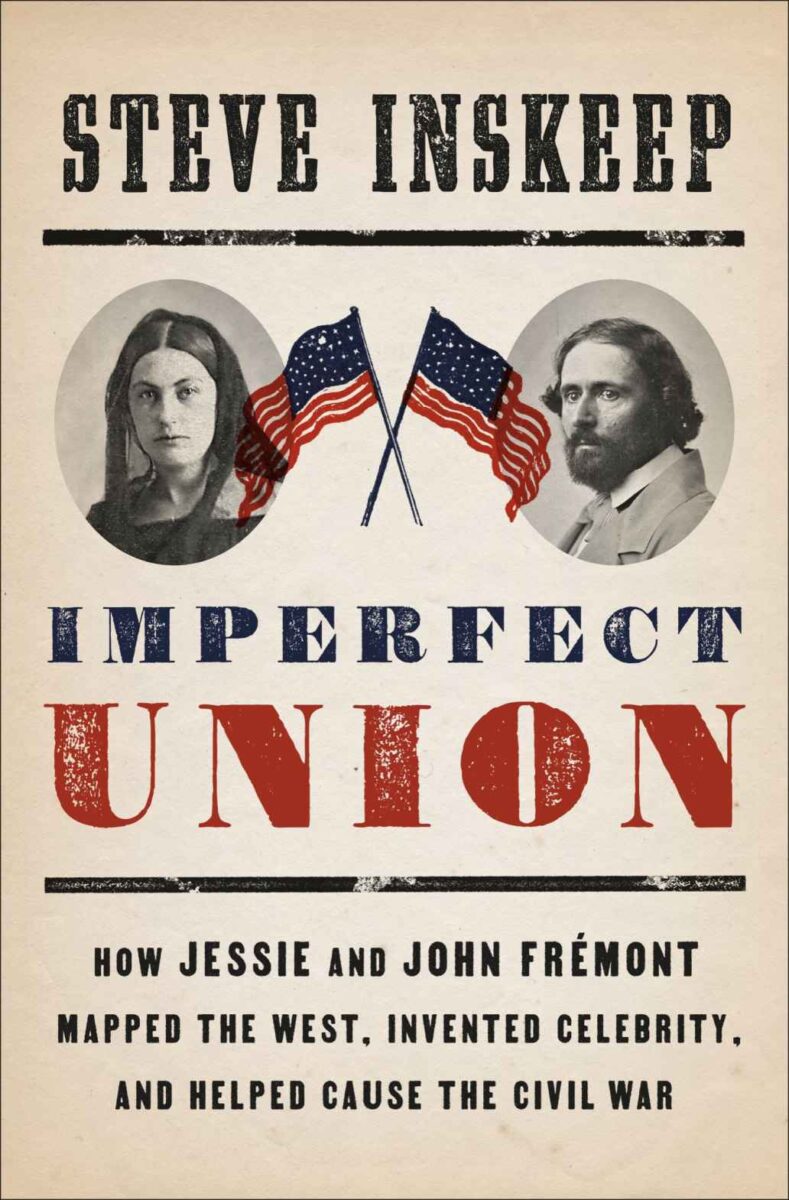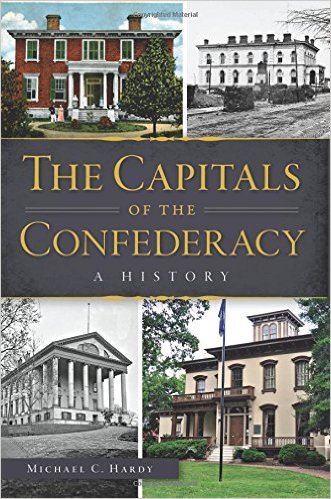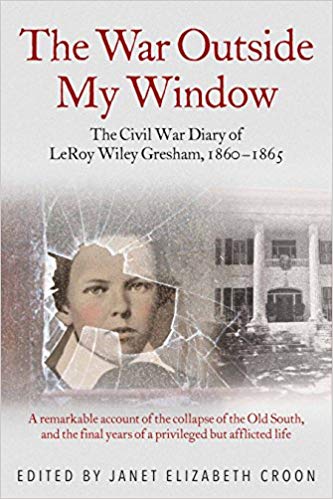Steve Inskeep is a U.S. journalist who hosts NPR’s Morning Edition and Up First; he prides himself on promoting lesser-known stories.[1] In Imperfect Union, Inskeep “aims to bring the Frémonts back into view through the story of their rise to fame, from their elopement in 1841 to their presidential campaign in 1856.” He claims, “in those years they pioneered a modern path to celebrity” (xxiv). Inskeep contends that the Frémonts grew famous in a democratic way because “they worked through the expanding news media, which never before had reached so many readers or wielded so much influence” (xxiv). He argues that “the Frémonts advanced the antislavery cause—and also helped bring about the Civil War,” though their role in the matter must be “properly defined.” In support of this he asserts, “events in which the Frémonts took part—westward expansion and the election of 1856—disrupted the old political order that had protected slavery, and forced a national reckoning with it” (xxvi).
The book is divided into four parts, containing sixteen chapters plus an epilogue. In “Part One: Nation Building,” Inskeep details the backgrounds of John’s and Jessie’s childhoods and family life, elopement, and separation because of his Oregon Trail expedition. Inskeep also details how Jessie’s parents influenced the Frémonts’ beliefs about slavery, expansion, and politics.
“Part Two: Destiny,” begins in 1843 with Frémont’s arduous trek from St. Louis to the Pacific and the weather and troubles the party encountered along the way. Throughout sections two and three, Inskeep discusses how John and Jessie partnered in recording his adventures and decided to put only positive observations in the narrative because that kept John at the center of the story. Throughout the text, Inskeep highlights Jessie’s creative license, which always ensured that her husband was the hero.
“Part Three: Golden State,” begins in May 1846 and focuses on John’s issues in California, the public response to reports from his last two expeditions, his court martial, and Jessie’s defense of him. In this section, Inskeep specifically points to Jessie’s attempt to discuss her anti-slavery position with the state constitutional convention delegates as the beginning of her anti-slavery activism; however, she was staunchly anti-slavery before this event. This section ends with John’s election to the U.S. Senate and their departure for Washington, D.C.
“Part Four: Black Republicans” begins in 1850 with the story of Senator Henry Foote’s attempted assassination of Jessie’s father, Senator Thomas Hart Benton. Inskeep discusses Frémont’s failed attempt at the presidency as the Republican candidate in 1856, his reaction to the loss, and their struggle to adjust afterward. This section concludes with the ill-fated end of John’s career during the U.S. Civil War and the ends of their lives.
Inskeep focuses his attention on telling an enticing story and leaves out many details concerning race and gender, specifically names of African Americans, Indigenous Peoples, and often the latter’s tribal affiliations, which are crucial to understanding them and thus their encounters with Frémont. Throughout the book, Inskeep describes many of the Indigenous Peoples that Frémont met simply as “Indian” or “mixed-race Indian” (51). While discussing the disaster of the explosion of the “Peacemaker” on the USS Princeton, he mentions but does not bother to name the “black man, a slave who worked as President Tyler’s valet” (88). This book makes sweeping claims about the Frémonts’ influence on national events, which presumes that no one else would have explored the West and captured the imagination of U.S. citizens, or that no one else might have been the 1856 Republican candidate. The book glorifies western expansion and gleefully tells the story of white settler colonial conquest. Inskeep occasionally uses insensitive racial terms without quotations (such as “mulatto” and “Negroes”) and fails to convey that the Indigenous Peoples Frémont encountered were not a monolithic group (122, 310).
Imperfect Union is eerily reminiscent of Sally Denton’s 2007 Passion and Principle, a joint biography of John and Jessie Frémont, which Inskeep credits in his sources and acknowledgements, but does not mention in the bibliography. Both are extremely favorable to the Frémonts, and chronology plays a large role in the similar structures. Inskeep’s approach to his book is very close to Denton’s, down to the specific stories and points illustrated (including her assertion about John as a celebrity), although Denton spends more time conveying Jessie’s story and discussing the intimate details of her life.
While I would not recommend this book because of its lack of understanding of how to properly discuss race and gender, it might entertain a lay audience. However, as a work attempting to shed new light on the lives of John and Jessie Frémont, it adds little new information to the conversation.
Shae Smith Cox is a Ph.D. candidate in the Department of History at the University of Nevada-Las Vegas.





